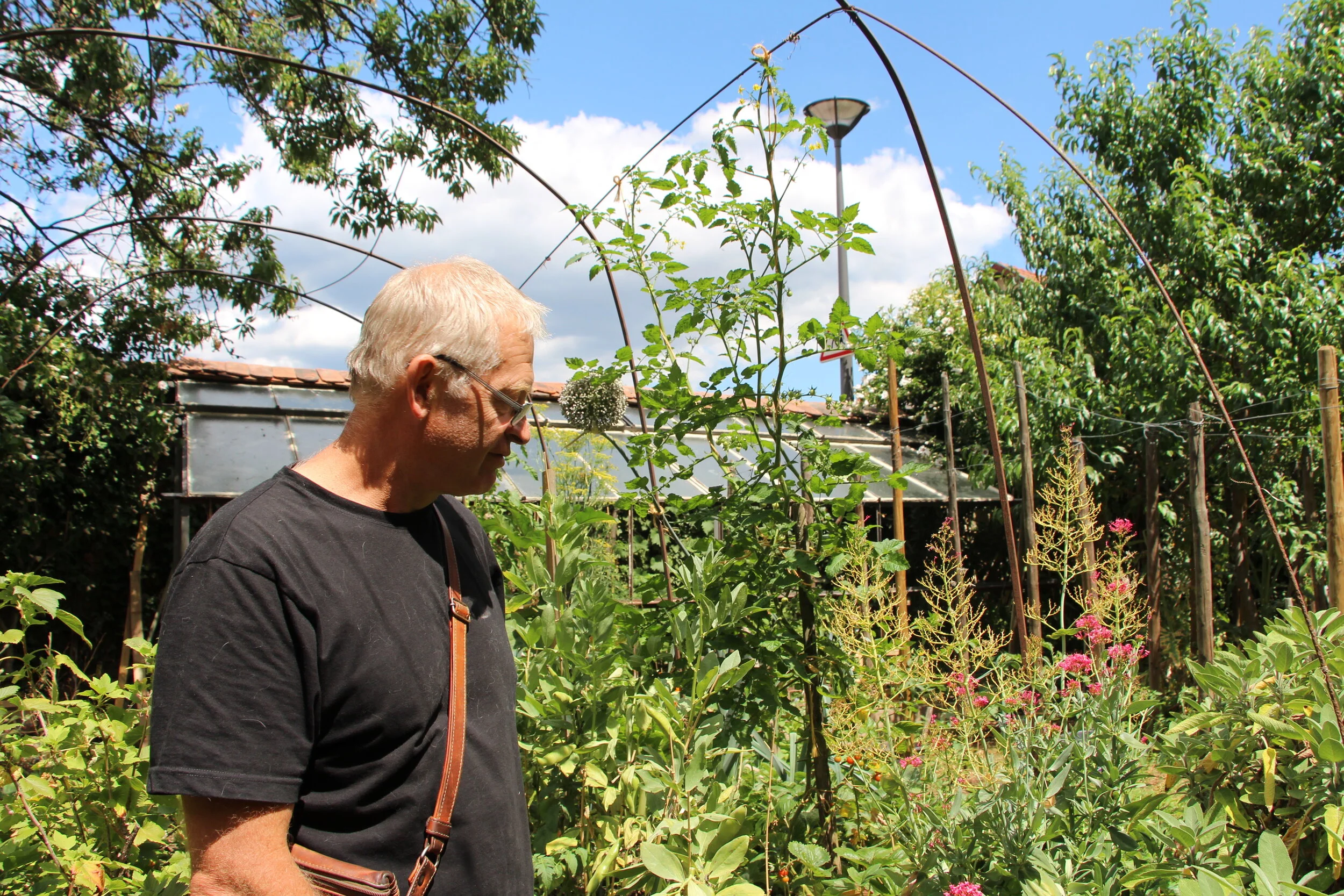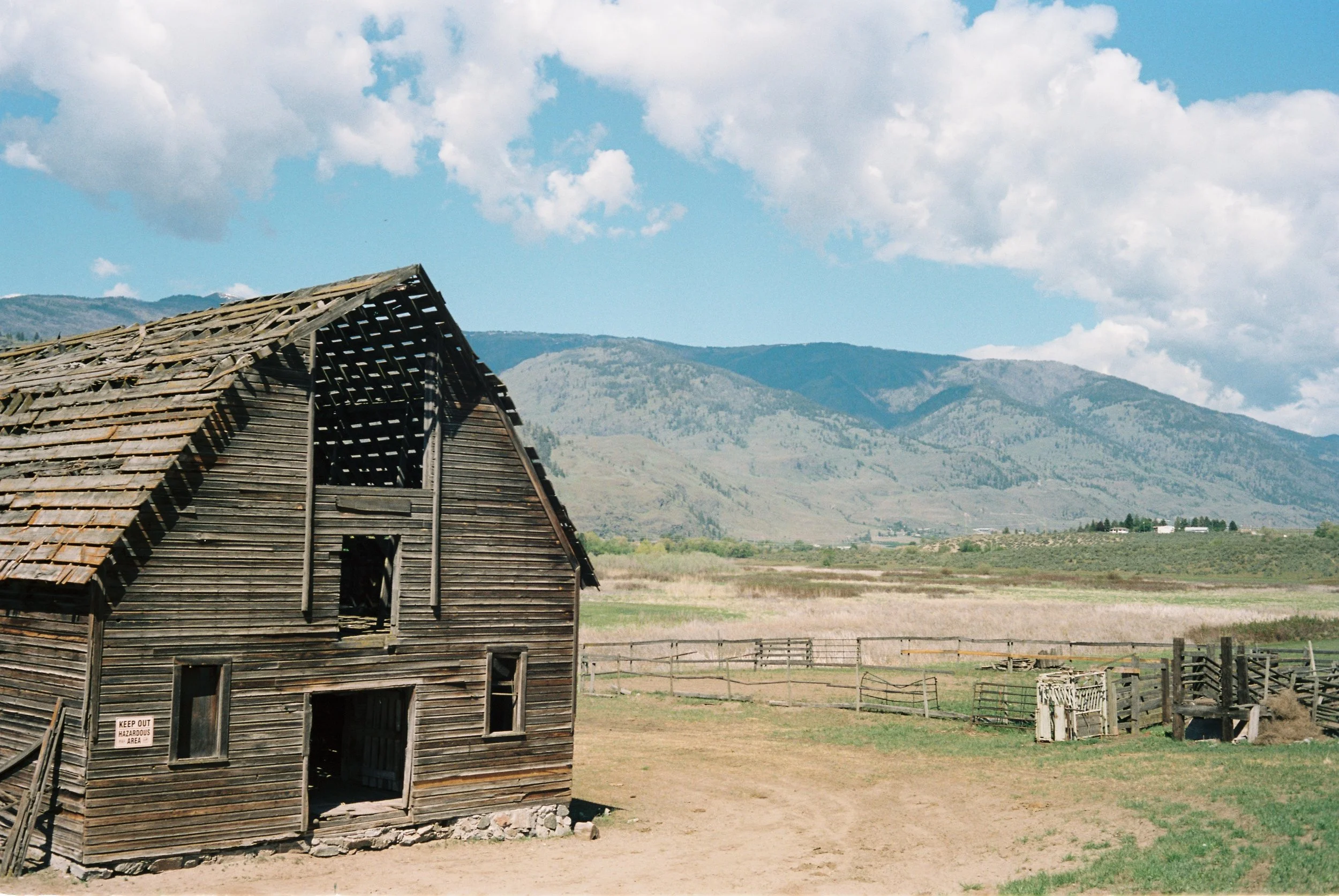What Can Be Explained Is Not Poetry — Meeting Winemaker Aldo Viola in Alcamo, Sicily
Focus.
Be still.
Listen.
Can you hear it? The rhythmic beats? The “bap, bap, tss, tss,” the resonant “thud,” the rippling “tsh, tsh, bapty, tap tah, tappity, tap, tah.”
This harvest is jazz. Jazz is a pulsating, soulful, expressive, and innovative genre of music, and it is exactly how we shall describe Aldo Viola's wine.
Aldo Viola—the man, the myth, the vintner. I met Aldo in his vineyard near Alcamo, Sicily, a small town in the province of Trapani; the “supreme” viticulture region of the island.
It’s the end of August, and the sun is unforgiving, blazing down on our bodies, which is no problem for Aldo. A native of the island, he’s acclimated to the weather, to the land around him, and his leathery, slightly freckled skin is evidence of that—a deep bronze under the sun’s relentless embrace.
Despite a demanding week of harvesting, Aldo, displaying no signs of fatigue, graciously insists we share his wine. His dusty, unlaced boots and faded jeans give him an air of relaxed confidence, which is further evident in his self-assured, yet gentle body language.
He grins at the idea of conducting the interview in English, a language that is his second or third. Interestingly, this constraint adds a poetic quality to his speech, creating novel and simple expressions by pairing words that don't normally collocate, such as saying, “My brain flies away,” instead of “I cannot concentrate.”
Illustrations by Changyu Zou
His communication leads to meaningful, albeit esoteric, dialogue. Fitting for a man wearing a t-shirt that says, “Voglio essere come una poesia che non si spiega,” which translates to, “I want to be a poem that cannot be explained.” Oh boy, I thought. I found myself having flashbacks to my twenties, navigating the pains of dating pseudo-intellectual bullies. But I quickly soften. Aldo is not this. He is calm. Humble. And honestly, just a chill motherfucker.
At a picnic table, he uncorks a bottle of his Brutto (which means “ugly”; it’s anything but this,) and begins a long and leisurely discussion about wine for the next three hours—and every conceivable subject that comes to mind while drinking wine. Speaking to Aldo is like speaking to a former Philosophy professor, who quit years before because of the broken system. Everything echoes these themes of being more attentive and listening, embracing your freedom, being aware of the energies around you, and of course, jazz.
That tah, tah, tah, bapty, bap, bap, tsh, tsh. Was I starting to hear the music wafting from the vines?
***
The Catarratto grape, indigenous to Sicily, is typically known for its neutrality, but with this Brutto, the grapes sing in your mouth, defying their given name. You’re instantly greeted by whispers of white peaches and hints of yeast. While it begins with the delicate nuances of fruit, this is not a typical fruity wine. The lasting impression is defined by its dry, mineral characters, adding a layer of sophistication to the overall tasting experience. Refreshing, balanced, and pleasantly potent, Brutto is suitable for both day and night consumption. It feels like a celebration wine. And it deserves joy.
If you're a devoted beer enthusiast who appreciates the intricate flavors of a lambic beer like gueuze—with its fruity undertones and vibrant acidity—then Brutto is a must-try. Like Gueuze, Brutto achieves a delicate balance between sweet notes with a salty dryness that lingers.
““Wine is perception, and one’s mood can change the wine. It’s alive.””
Walking through Aldo’s Catarratto vineyard, you can feel the grapes’ connection to the sea, and it doesn’t hurt that there’s a beautiful view of the Mediterranean. The earth here is markedly different. The soil composition, resembling a thick sandy consistency, exerts a substantial impact on the grapes, and the unmistakable influence of the sea’s rich saltiness can clearly be perceived.
Aldo is often described as one man, one wine, signifying the idea that a single individual, in this case, Aldo, is intimately connected to and responsible for the entire winemaking process, from seed to grape to bottle. The sentiment highlights the personal touch and profound connection between the winemaker and their creation, suggesting that their approach and care are infused into each bottle of wine, resulting in something completely of its own. Aldo makes natural wine, with little to no outside intervention, which, as he explains, is food for the soul.
Aldo’s winemaking philosophy is a testament to his belief in minimal intervention. His wine undergoes no filtration, clarification, or stabilization processes. He de-stems the grapes by hand, to not only eliminate the invasive interventions but also because Aldo believes too much in his grapes. He wants them to perform at full capacity. He possesses a faith in his grapes so profound, it’s practically religious.
For him, the energy of human touch far surpasses that of any machine. His perspective on winemaking echoes the concerns of the past, reminiscent of the Industrial Revolution, when many feared that mechanization was leading to a loss of human connection and a degradation of the natural world. In essence, Aldo embodies Antoine de Saint-Exupery's words, “The machine does not isolate man from the great problems of nature but plunges him more deeply into them.” For Aldo, this philosophy holds true in the art of winemaking.
Aldo believes that man is gentler and more precise in his craft, and honestly, it was just the kind of unexpected Ted Talk I needed to remind myself to be more connected in my own life. As Aldo says, everything is energy, and if we put good energy in, we can expect good things. And when you don't have good energy inside, you don’t need to share as much with others.
***
Aldo has been connected with nature, communicating and listening since he was a boy. As a fourth-generation winemaker, Aldo carries on a family tradition that spans his great-grandfather, grandfather, and father, Don Ancilino. This legacy endures as Aldo and his brother, Alessandro, continue to bottle and sell their own individual wines. Though Aldo may not explicitly label himself a winemaker, he embraces the roles of artist, farmer, composer. This symphony of skills defines his approach to his land and illustrates the importance of communication in this trade.
We know good communication can be the secret ingredient to a healthy lifestyle, but it turns out that it’s also the secret to producing exceptional wines. And, as with all effective communication, it begins with listening.
“I understand what my grapes are saying. They speak to me in their own way, but I don't impose expectations on them,” Aldo says. He emphasizes the importance of letting go of preconceived notions and releasing expectations to allow life, people, and even grapes to unfold as they unfold.
“When you drink my wine, I can tell you whatever you want, and I can offer you words you'd like to hear,” he adds. “However, you have to decide what you seek. It should be an experience, one that requires an open mind. And, of course, sharing it with others. Wine is perception, and one’s mood can change the wine. It's alive.”
““I understand what my grapes are saying. They speak to me in their own way.””
While it might seem like a lot to attribute to a bottle of wine, Aldo suggests that his wine can influence your emotions and experiences. While some may simply want to open a bottle to unwind and watch a movie, Aldo would argue that his wine transforms that experience, making it something entirely different. Just as certain songs evoke specific emotions or memories, wine has the potential to shape the way we perceive and enjoy life’s moments.
Aldo’s adventures in Denmark, Thailand, India as well as the influence of his father all played a pivotal role in this journey of his. Traveling, coupled with Don’s teachings, fostered Aldo’s connection to nature, which continues to inspire his winemaking philosophy and the creation of the extraordinary wines that bear his name.
Beyond the Catarratto Aldo has other vineyards and works (or communicates) with a number of varieties including Grillo, Nerello Mascalese, Syrah, and Perricone—some macerated longer than others.
Aldo’s maceration technique, involving extended skin contact with grapes, continues this perspective of communication because it emulates the way he listens to the grapes’ subtle cues. For instance, Grillo and Catarratto grapes have undergone an extraordinary nine-month maceration, unintentionally paralleling the gestation period of new life.
This coincidence serves as a fitting metaphor: the initial four months extract essence from the grape skins, followed by a phase of giving back. It’s the circle of life in the realm of winemaking, with the continuous interplay of giving and receiving and giving and receiving that once again gave me pause because I never considered how much nature has to teach us about being decent people.
While the Brutto wanes to an end, Aldo’s words linger in my mind. The idea of staying connected to our surroundings, the energy we invest in our work and life, and the art of listening.
Aldo, perpetually attuned to his grapes, explains: “Sometimes it's just noise, and sometimes it's music. To me, it's everything.”


















